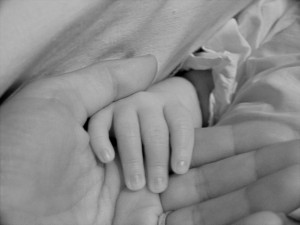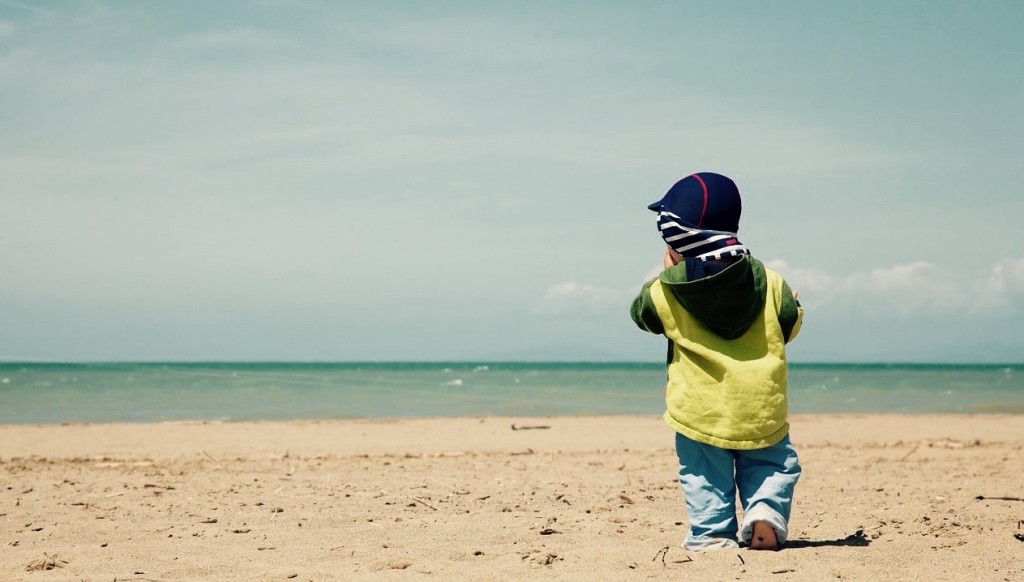Like many children, Cody loves water and going swimming, jumping up and down on a trampoline, exploring the world around him, listening to music, fishing, horse riding, and spending time with his dad and his grandparents. Cody is a unique child with a rare congenital disability called bilateral anophthalmia, meaning he was born without eyes. He was subsequently diagnosed with autism, which makes his a distinctive case.
People who pass by Cody often immediately think that he is different from other children. They tend to look at him with great sadness and consider him not to be like other children, but this is because they do not take the time to get to know him or to see how incredible he is. Convinced that Cody is not able to understand them, they overlook him. Like other children with certain disabilities, Cody requires particular care and skilled personnel to assist him with developing his abilities and communicating.
At the state school that he attends each day, he is a member of the “Resource Room”, a unique class with specialised teachers such as his teacher who specialises in assisting children with sight problems and who taught Cody how to use a cane and get around independently.
His school offers a mixed programme that allows him to follow specialised courses as well as to participate in many things with other children from the school, which is something he loves to do.
This unique disability that Cody has remains challenging, not only in terms of the treatment he receives, but also because there are few people with the necessary experience to provide the assistance that he needs. He is currently working with a couple who are teaching him how to use tactile objects as symbols to communicate with. This is a long process, but it is an innovative method that yields results.
During an interview with Humanium, Cody’s mum, Corinne Martens, recounted some of the difficulties that she has encountered and how her life changed completely after the birth of her second child. Like any mother facing this kind of challenge, she has had to devote more time and effort to raising Cody than when caring for her eldest daughter Jessica.
She works on a part-time basis while Cody is at school or while he is at one of his therapy sessions. When she gets home, she puts the skills acquired into practice with him to help them to communicate with one another.
The social and family lives of the family have been turned upside down. All activities must be planned in advance and this takes up almost all of their available time. This requires patience and can be frustrating at times, especially for Jessica, who feels neglected because of all the attention her brother requires and due to the fact that she cannot participate in the same activities as other families.
Fortunately, the family receives support and has been able to share their problems with members of listening groups, attend workshops and access help online. All this has proven to be very useful. The Canadian Government also provides support to all parents who find themselves in situations like these and offers them the necessary support so that their child may be taken care of by the right people in relation to the child’s training and therapies, and so that they may even benefit from having sessions at home. The objective here is that the child learns to communicate, find their way around and develop the skills needed to be autonomous.
In addition to her role as a mother, Cody’s mum advocates on behalf of children with disabilities. She makes requests for assistance to all foundations and organisations that are willing to work with her, not only in relation to financial matters so as to cover the high level of expenses involved in living with the disability that Cody has (e.g. ocular prostheses, orthopaedic shoes, treatments, special education), but also to convey a message and to deliver her story about Cody’s life.
She is proud to see the progress her son is making. She has learned to understand and to read his body language. She knows that he is happy when helping with the housework and . Little by little, he is gaining a greater degree of autonomy, and for this reason alone she wants to keep up the fight.
I imagine and hope that his independence will continue to develop so that he can enjoy life even more. I am proud to be able to contribute to this growth process. I don’t know if he will ever be completely independent and I think that he will always need someone to help him, but I am sure that he will continue to enjoy the company of others, especially those who love him.
 There are children with disabilities everywhere who are facing great difficulties. When I read articles on this subject and I see that they are placed in institutions instead of with their families in their communities, it breaks my heart. Time and time again I hear parents say that doctors and other professionals have strongly encouraged them to give up their child due to the stigma children with disabilities face or because of inadequate government support. It must be terribly difficult to give up your child and to feel that you have no other choice than to do so.
There are children with disabilities everywhere who are facing great difficulties. When I read articles on this subject and I see that they are placed in institutions instead of with their families in their communities, it breaks my heart. Time and time again I hear parents say that doctors and other professionals have strongly encouraged them to give up their child due to the stigma children with disabilities face or because of inadequate government support. It must be terribly difficult to give up your child and to feel that you have no other choice than to do so.
Things have got to change. These children need love and support. They also need the financial means to be able to grow and learn. And they need to be at home with their families and be part of the community.
Article 23 of the UN Convention on the Rights of the Child makes special provision for those children with mental or physical disabilities. It states that governments must provide the necessary assistance to ensure that every child with a disability has effective access to education, training, health care, rehabilitation services, preparation for employment and recreational activities, in a manner that is conducive to achieving the fullest possible social integration. Children with mental or physical disabilities should enjoy a full and decent life, in conditions that ensure their dignity, promote self-reliance and facilitate their active participation in the community.
These rights are compromised when children are sent away to care facilities because they are no longer able to receive the encouragement, affection, input, support and love they need from their parents. These elements are essential to their growth and development.
They are often taken care of by members of staff who do not have the necessary qualifications to meet the unique behavioural, developmental and educational needs of children with disabilities. Many cases of neglect, mistreatment and abuse have been reported due to a shortage of staff or due to lack of time and training.
These children ought to be living in a family environment that provides them with love and care. Families need to be supported financially by the government so as to allow them to provide their children with the care they need and, in turn, to ease their workload. They also need money for treatment and educational development. Beyond all this, specialised educational programmes with regular integration opportunities are required. Community programmes should offer appropriate opportunities. Children should be exposed to nature, to others and to the community, as well as to learning, music, books and games on a daily basis, while being able to interact with other children. Their minds and bodies need to be stimulated through learning and exercise. They must learn to take care of themselves and thus develop a sense of pride and accomplishment so that they feel in control of their own lives and of determining their own identity.
My heart goes out to these children who have been separated from their families and who are living in institutions or have often been abandoned, abused and neglected. If I had the power and the means to do so, I would return them all to their families and close down these institutions. to protect the rights of children with disabilities, to divert funds away from institutions and to instead send these funds to the families of children with disabilities and their communities.
If I could somehow convey the love that I carry inside me, despite the distance between us, this is the message that I would send to other parents: “Feel the love and joy that I have in my heart for my child. Your child is a precious gift, full of love and promise. You have a special role to fulfil: I beg of you to accept it, fight for it and, above all, be grateful. Your child desperately needs you, do not let them go”.
SOURCE: Personal interview with Corinne Martens.
Written by: Maria Elena Ramírez Translated by: Hannah Brigit Maley Proofread by : Amanda Fearnley |


